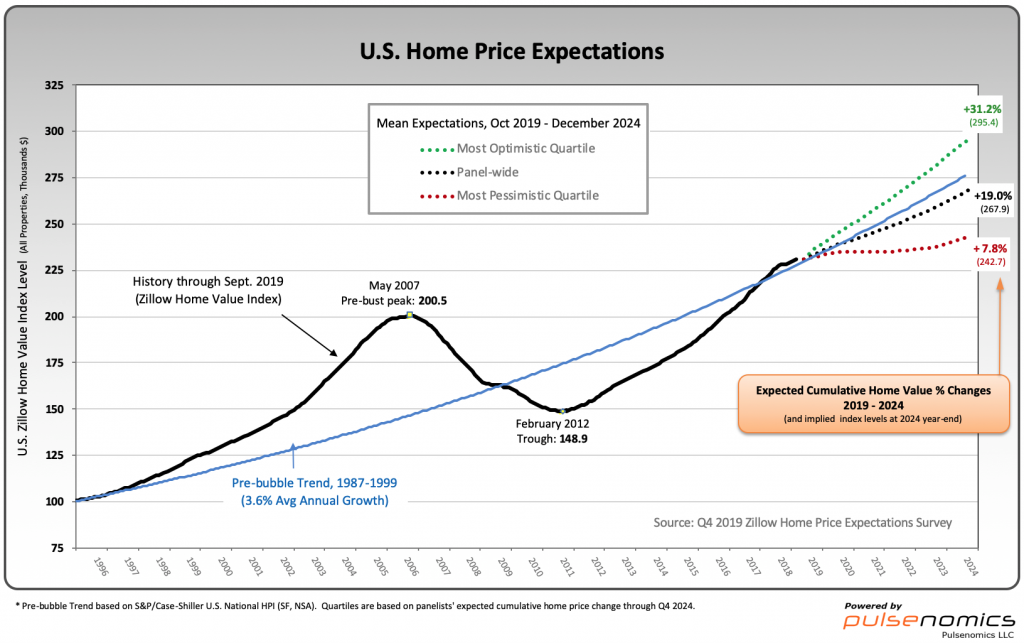On December 16, 2019, the Zillow Q4 2019 Home Price Expectations Survey results were released. This survey is done on a quarterly basis.
Two excerpts from the press release:
The experts project that U.S. home prices will increase by an average of 2.8% during 2020. This is a slightly more optimistic outlook than the 2.5% rate the panel projected for 2020 both last quarter and one year ago, but lower than the 3.6% growth expected for 2019.
also:
The experts’ predictions for nationwide home prices in 2020 range from 7.4% growth to 3.0% contraction, and increased divergence in longer-run expectations also confirms that market conditions remain far from settled. “Our most optimistic group of experts expects 31.2% cumulative home value appreciation through 2024, while our most pessimistic group expects a cumulative gain of just 7.8% over the same period,” Loebs explained. “In dollar terms, the difference between these equally plausible scenarios is almost $7 trillion in aggregate home equity value. We’ve been conducting this survey for more than ten years, and this barometer of housing market malaise is now at a record-high level.”
–
Various Q4 2019 Zillow Home Price Expectations Survey charts are available, including that seen below:

As one can see from the above chart, the average expectation is that the residential real estate market, as depicted by the U.S. Zillow Home Value Index, will continually climb.
The detail of the Q4 2019 Home Price Expectations Survey is interesting. Of the 110 survey respondents, only three (of the displayed responses) forecasts a cumulative price decrease through 2024, and none of those forecasts is for a double-digit percentage decline. The largest decline is seen as a 6.7% cumulative price decrease through 2024.
The Median Cumulative Home Price Appreciation for years 2019-2024 is seen as 3.45%, 6.29%, 9.10%, 11.81%, 14.92%, and 18.30% respectively.
For a variety of reasons, I continue to believe that even the most “bearish” of these forecasts (as seen in the above-referenced forecast) will prove far too optimistic in hindsight. From a longer-term historical perspective, such a decline is very mild in light of the wild excesses that occurred over the “bubble” years.
I have written extensively about the residential real estate situation. For a variety of reasons, it is exceedingly complex. While many people continue to have an optimistic view regarding future residential real estate prices, in my opinion such a view is unsupported on an “all things considered” basis. Furthermore, from these price levels there exists outsized potential for a price decline of severe magnitude, unfortunately. I discussed this downside, based upon historical price activity, in the October 24, 2010 post titled “What’s Ahead For The Housing Market – A Look At The Charts.”
_____
The Special Note summarizes my overall thoughts about our economic situation
SPX at 3196.86 as this post is written